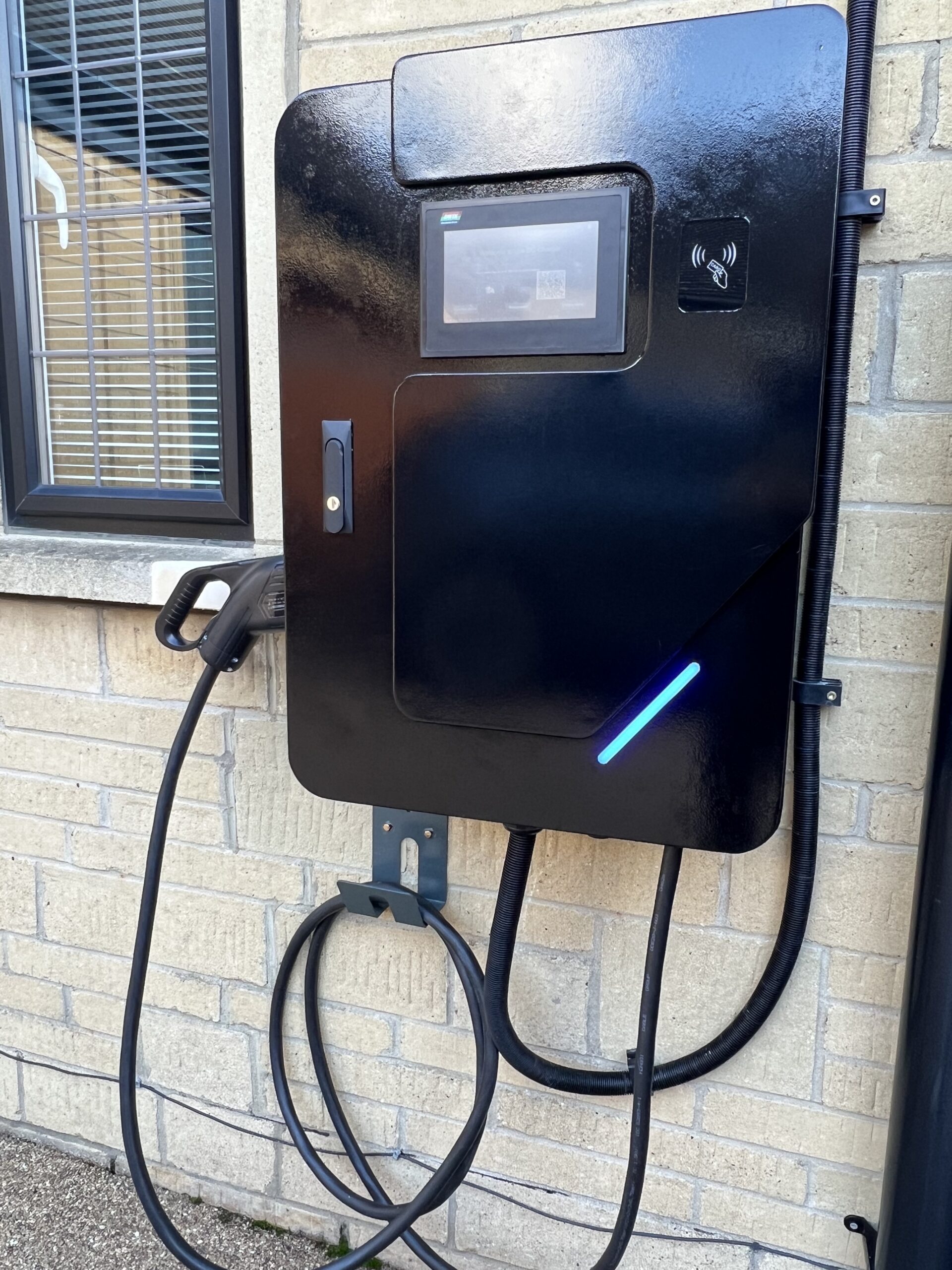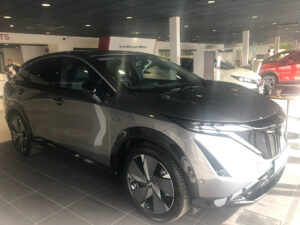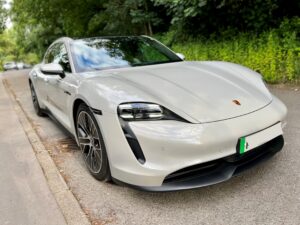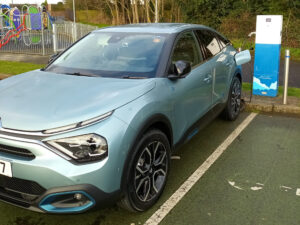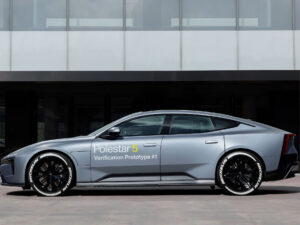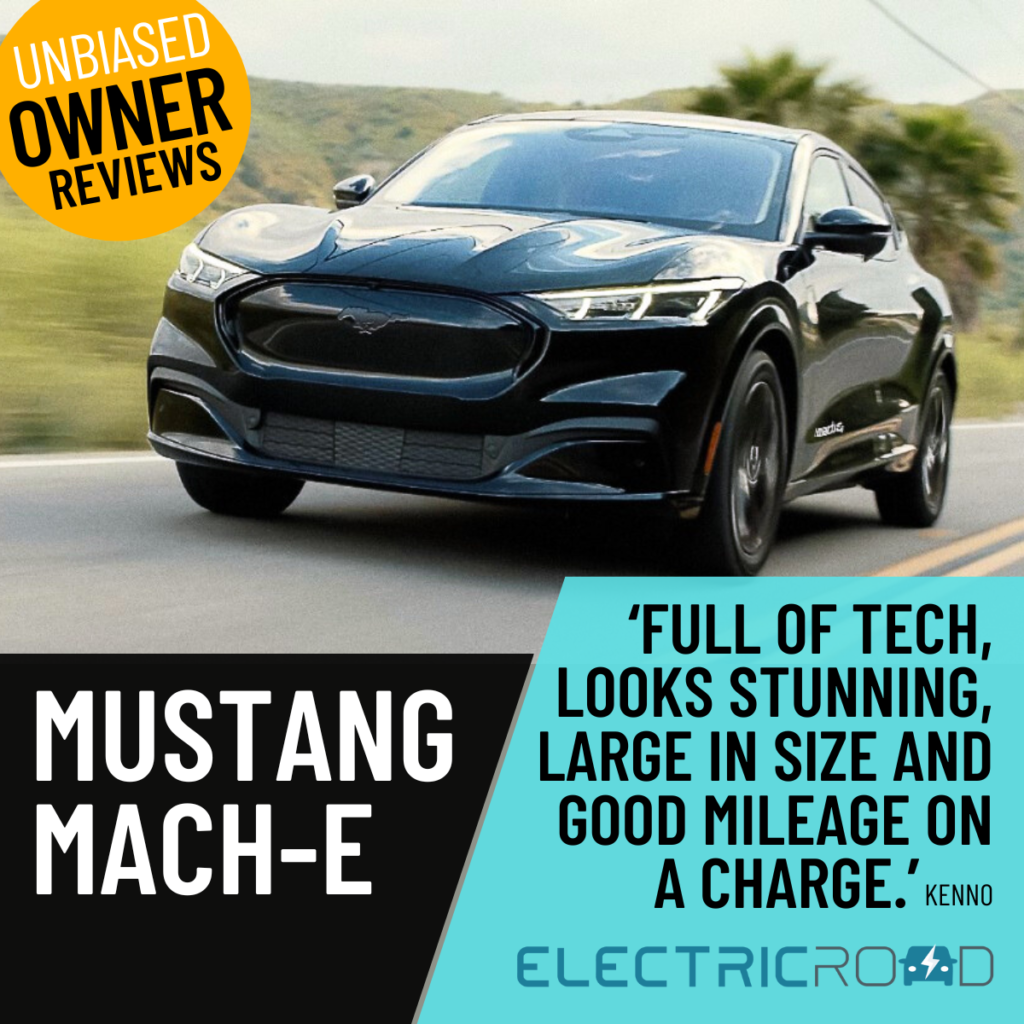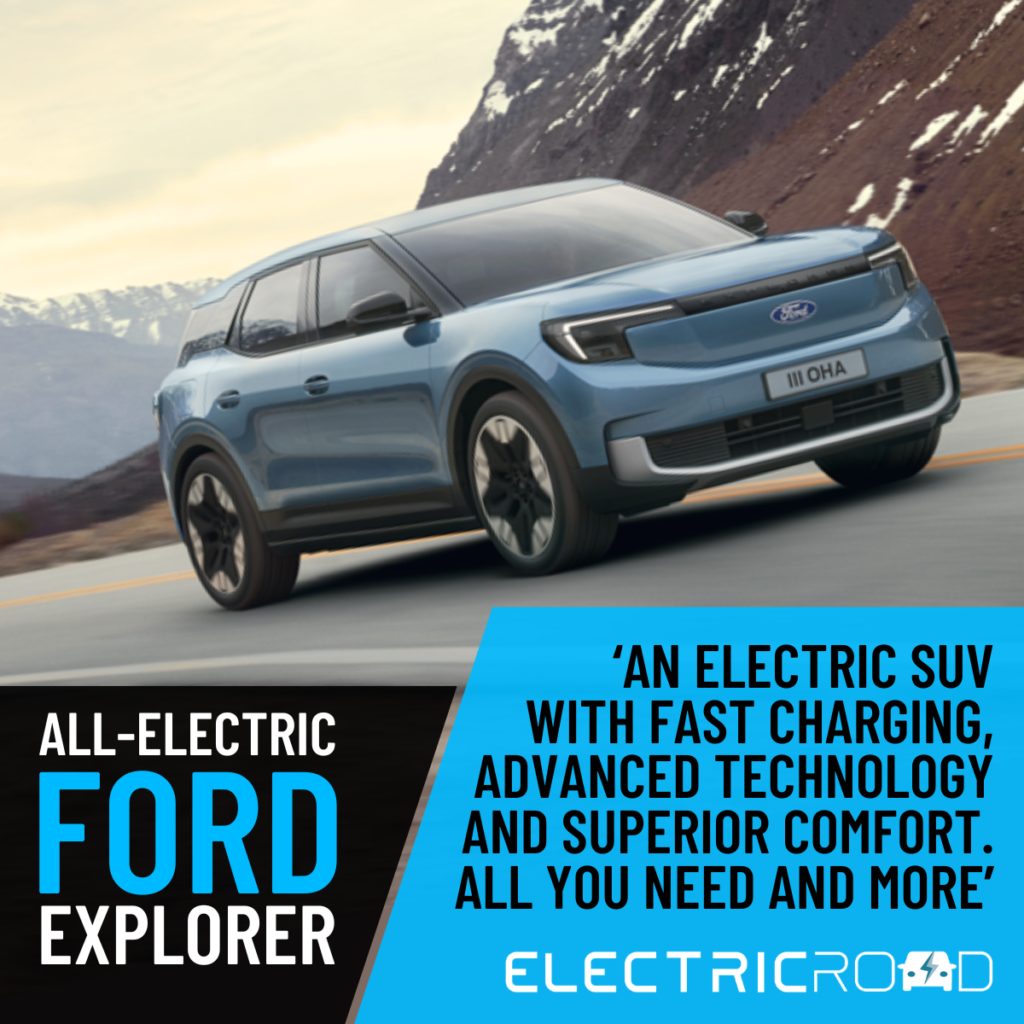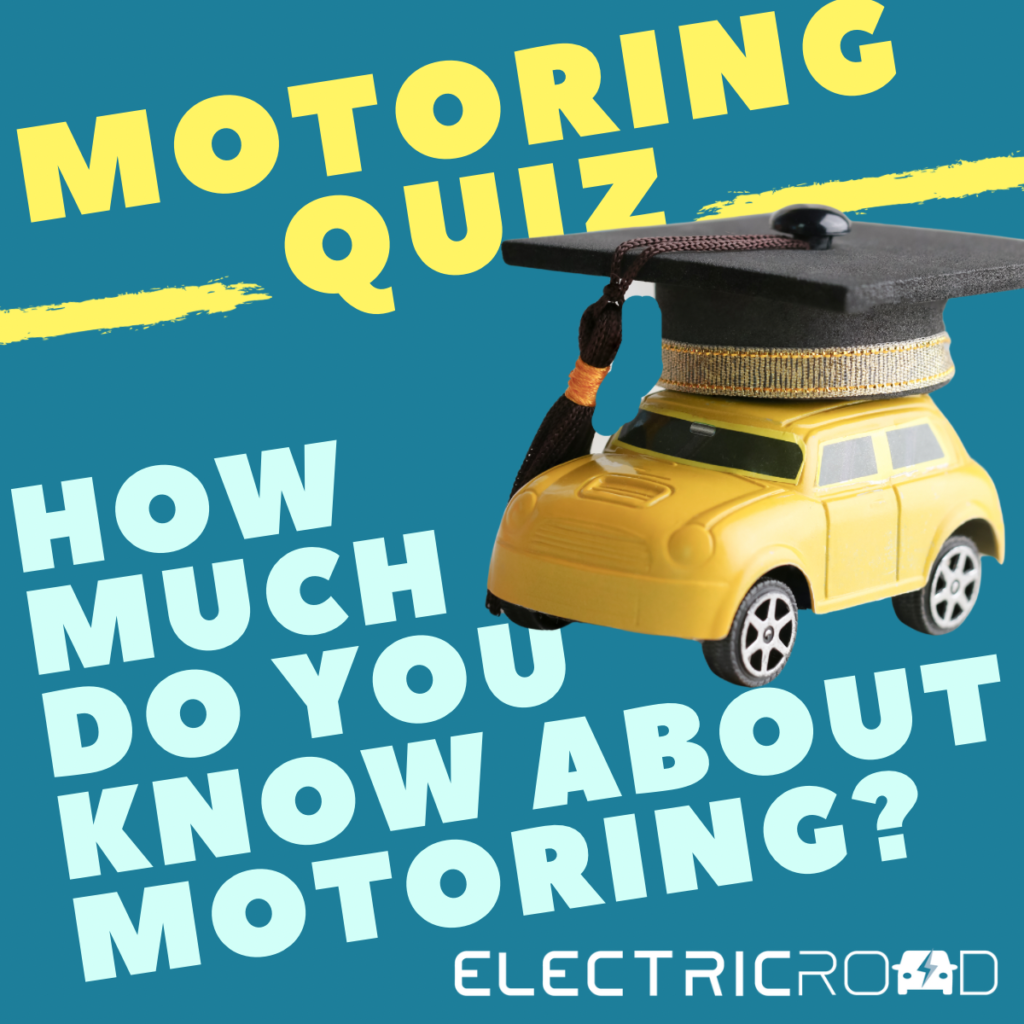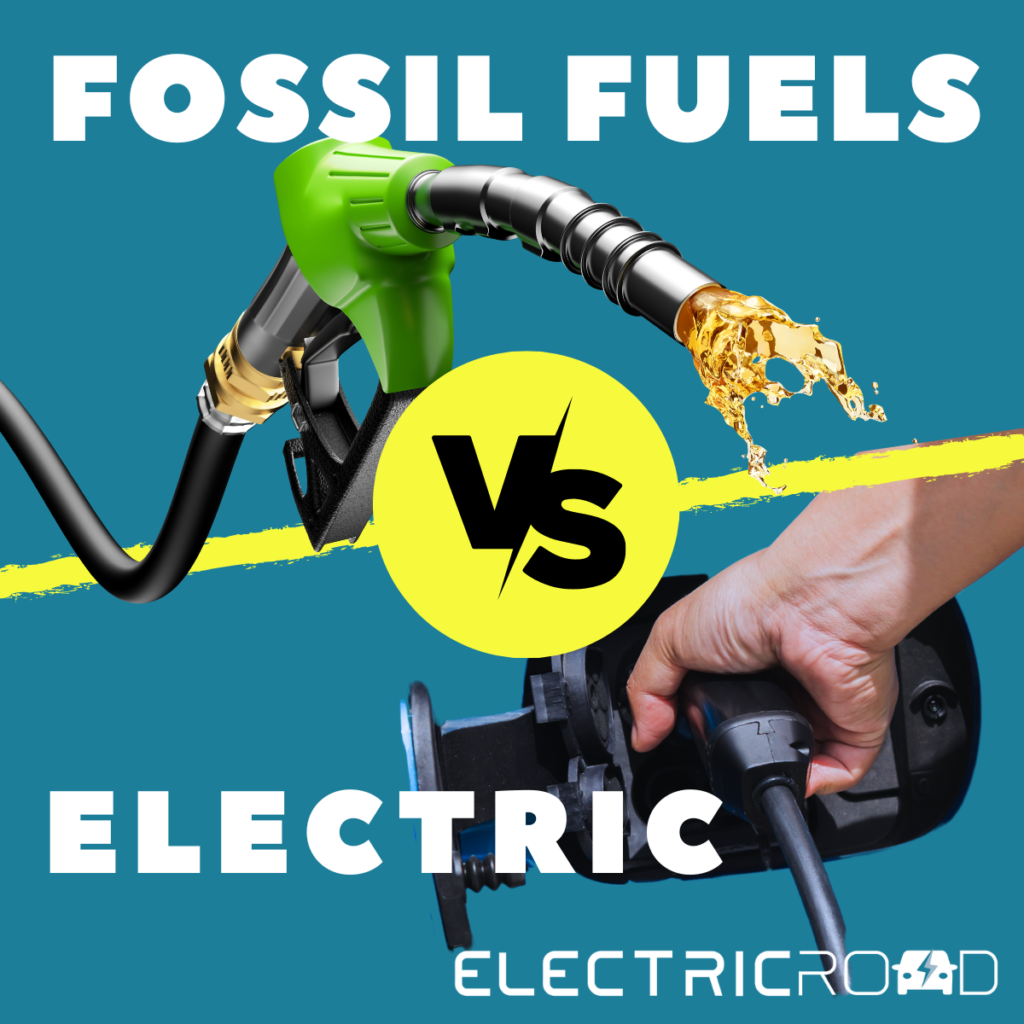Mark Bayley uses a Project EV D-40S-P 2022 home charging unit.
Provide your overall rating for the charging unit
Sign-up to Electric Road now to receive a FREE ‘Guide to the Best Electric Cars’, a weekly Newsletter and to win some great prizes!
Which company installed it and would you recommend them?
Avonlea Electrical Services Ltd
How much did you pay for your unit and installation?
£10,000
Why did you purchase the Project EV D-40S-P?
We have three phase electricity at home (that we have never used). I also run my business from home. As a surveyor, I am frequently at client sites and often return home for short periods. A 40kW CCS charger gives flexibility for quick top-ups or quick overnight charges.
List 3 or more points that you like about the charging unit
- Speed of charge
- cheap overnight charging
- plug and play.
List 3 or more points that you don’t like about the charging unit
- No ability to schedule charges on DC. Even the cars (ENYAQ and ID.3) won’t allow scheduled charging through their apps or through the car.
- set up was clunky and we had to resort to setting up via a laptop
- It’s big!
Outline any faults you have experienced with the unit
- Was difficult and clunky to initially set up; once set up though it’s great
- working with Project EV (who seem to want to assist and progress their products) for scheduled charging
- had one instance where the charger stopped charging at c.60%, never had this issue since though
- the app is not really set up for DC charging either. It works but is really best suited to AC chargers.
- once it is set up though, it really is plug and play.
Tell us about your home charging routine
We have two EVs at home. We charge the ID.3 twice a week. Averaging 200 miles per week (town driving). We charge the 80kW ENYAQ three times a week. Sometimes short charges to get the range back up and other times overnight using Octopus Go to 100%. Weekly mileage varies and can be up to 400 miles per week. The app is great as you can input your electricity tariff and it calculates the cost of each charge. This is then re-imbursed by the company each quarter.
If you were buying a new charging unit now, what would you buy and why?
As we run our business from home and rely on the EVs, I would definitely consider a CCS charger again. Yes, the upfront cost is high but we hardly ever use public charging now. We also have the knowledge we can ‘splash and dash’ if we need to head out to clients at short notice (which tends to happen). We can also offer rapid charging to clients and customers that visit us too. We are hoping it will also future proof us when the children start driving and maybe have EVs too.
Tell us about your electricity provider and tariff. Would you recommend them?
We use Octopus Go and benefit from the cheaper overnight 00:30-04:30 charging period. The only bugbear is lack of timing flexibility on either of the cars, their apps or the DC charger. It’s something that Project EV are looking into and running some testing. They seem a very progressive company and this is the first time they have experienced this as most CCS chargers are commercial installs. The overnight charges are typically £3.50 a charge (to 100%) and daytime is used for rapid top ups. Octopus Go works well for us.
Are you part of a charger-sharing scheme for those who don’t have their own charger?
No, but we’d consider it. I know Project EV talked about Electric Miles and we are hoping to work with them to bring the CCS chargers online too.
See other home charging reports here


